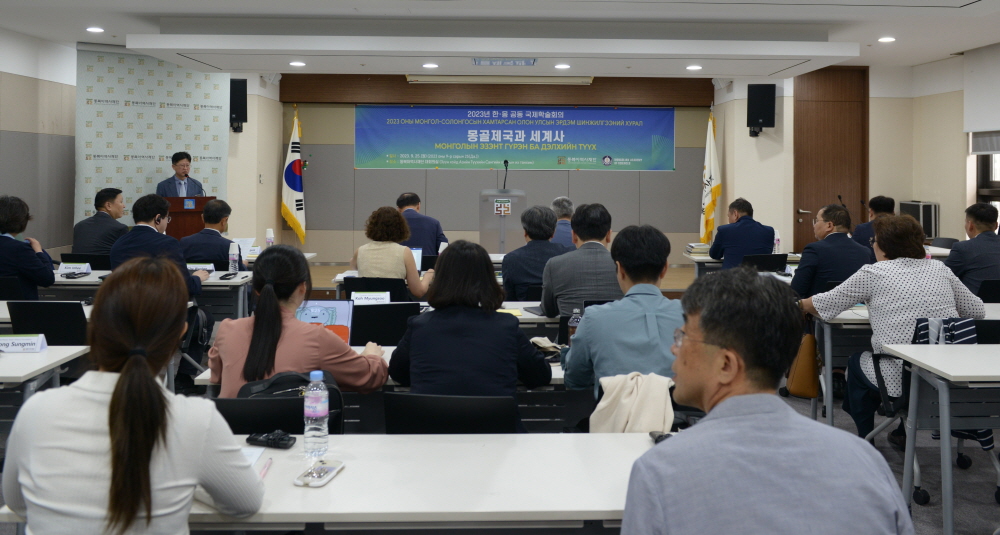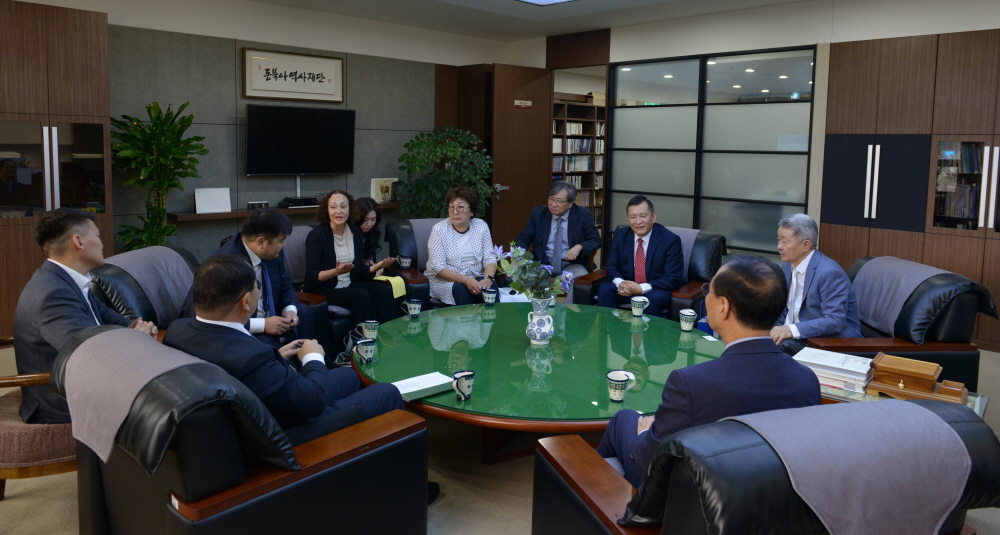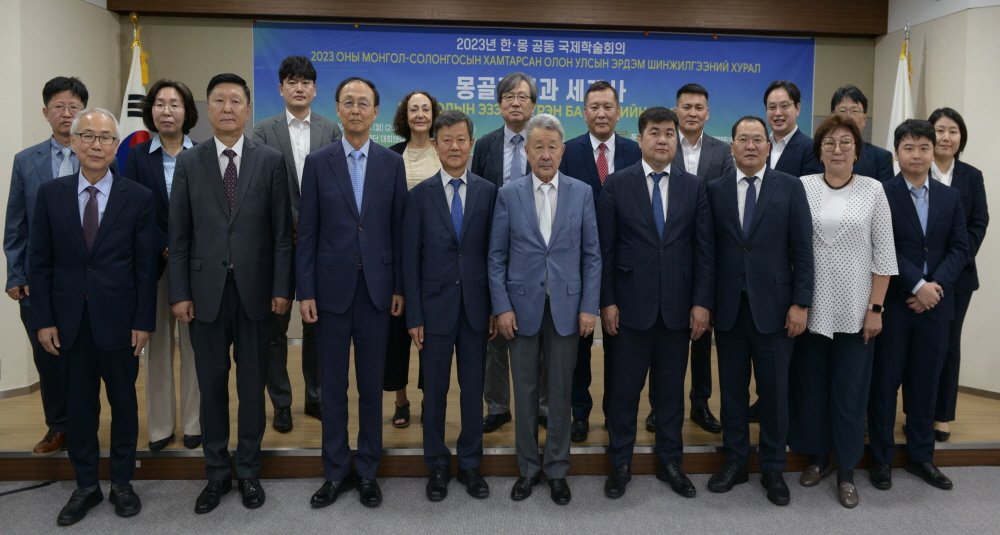The Northeast Asian History Foundation, in collaboration with the Mongolian Academy of Sciences (President: D. Rekdel), held a joint academic conference on the theme of "The Mongol Empire and World History" on September 25th (Monday) in the main conference room on the 11th floor of the Northeast Asian History Foundation building.

Since the 1990s, with the acceleration of globalization in the post-Cold War era, new approaches to the Mongol Empire, which led the birth of world history in the 13th century, have drawn particular attention. Various countries and cultures, struggling within the 'Pax Mongolica' (Mongol-led peace), responded with diverse survival strategies and adjusted their identities amidst significant opportunities and various risks. In this regard, the theme of "The History of the Mongol Empire and World History" is considered significant in elucidating the correlation between grand international orders and the identity formation of nations and cultures.
This academic conference was divided into two parts: the first part reviewed the significance of the upcoming publication of the "Cambridge History of the Mongol Empire," scheduled for release at the end of September 2023; the second part covered the latest trends in research on Genghis Khan and the history of the Mongol Empire by scholars from Korea and Mongolia.
In the first part, Professor Michal Biran (Hebrew University of Jerusalem) and Professor Ho-dong Kim (Seoul National University) introduced the key contents and publication significance of the "Cambridge History of the Mongol Empire," which comprehensively deals with the history of the Mongol Empire for the first time in the Cambridge history series. This series is recognized as a must-read for researchers in the field. The fact that the two scholars responsible for editing the volume presented its intent and contents in Korea holds great academic significance.
The second part featured the following presentations: Researcher Yong-cheol Kwon (Institute for Northeast Asian Studies, Dankook University) introduced the current state of Mongol Empire research in Korean academia, noting remarkable achievements in both quantity and quality. Professor Ts. Enkhchimeg (Mongolian Academy of Sciences) presented the recent research outcomes and new trends in Mongolian studies of the Mongol Empire. Professor G. Altansukh (Mongolian Academy of Sciences) discussed recent research on the "Secret History of the Mongols," focusing on Mongolian social structure and proper names. Professor G. Eregzen (Mongolian Academy of Sciences) reported on the recent full-scale excavations and research investigations on the Mongol Empire. Lastly, S. Chuluun, Director of the Chinggis Khan Museum, explained the social role and significance of the museum in Mongolia.
This academic conference provided an opportunity to broadly discuss globalization and cultural exchange during the Mongol Empire period, as well as identity crises and transformations, fostering historical insights to resolve recent intensifying historical and cultural conflicts. Furthermore, it laid a solid foundation for future joint research projects and academic cooperation between Korea and Mongolia.




